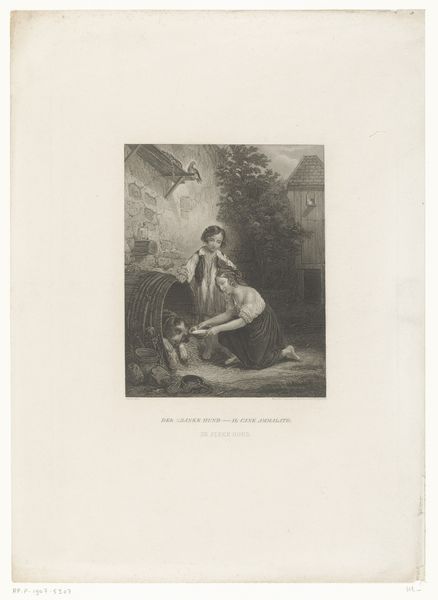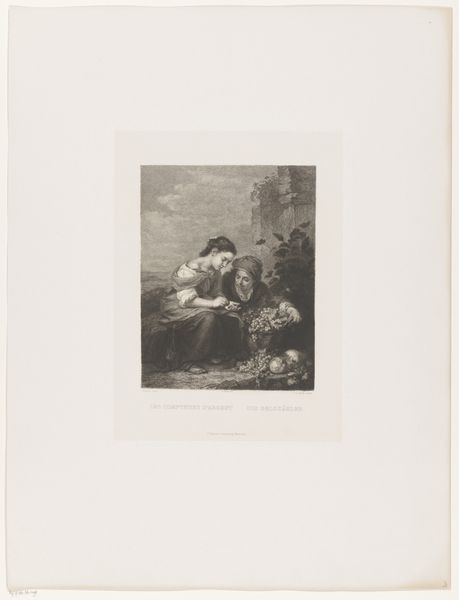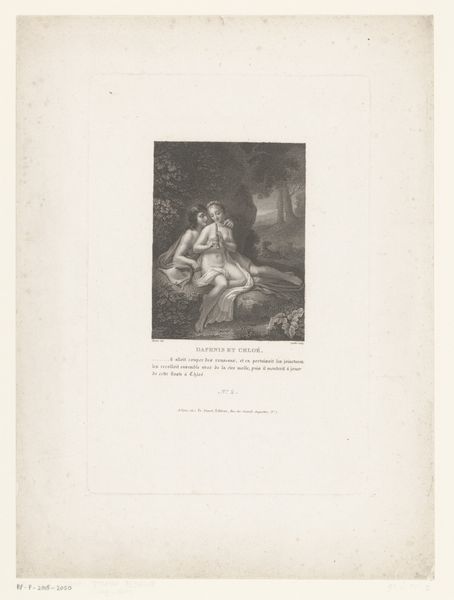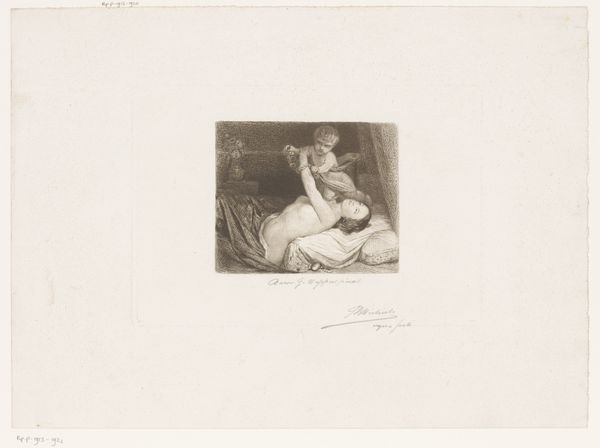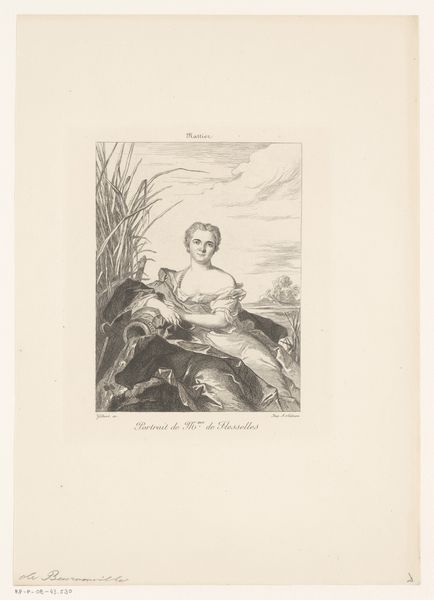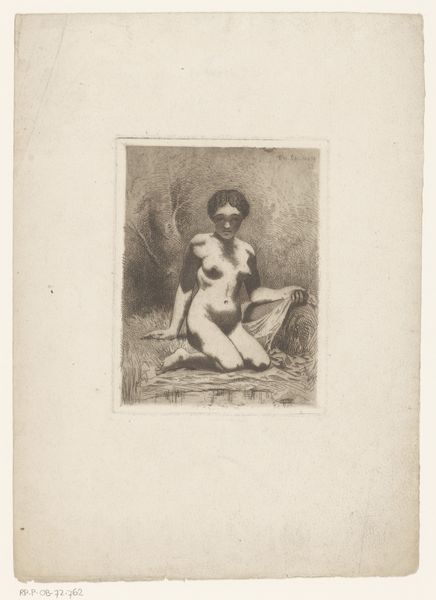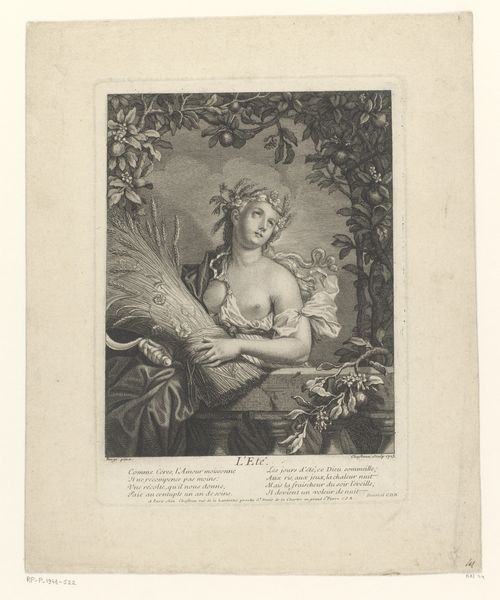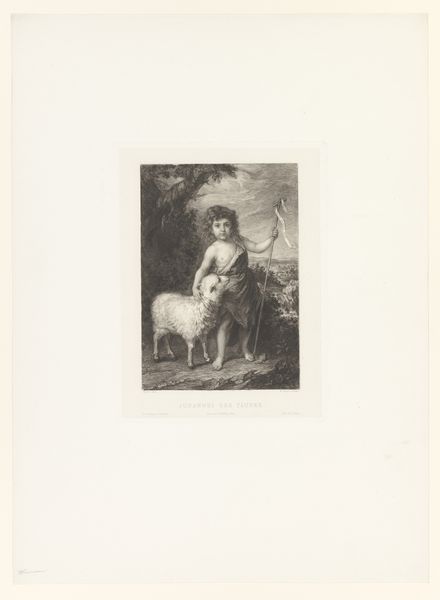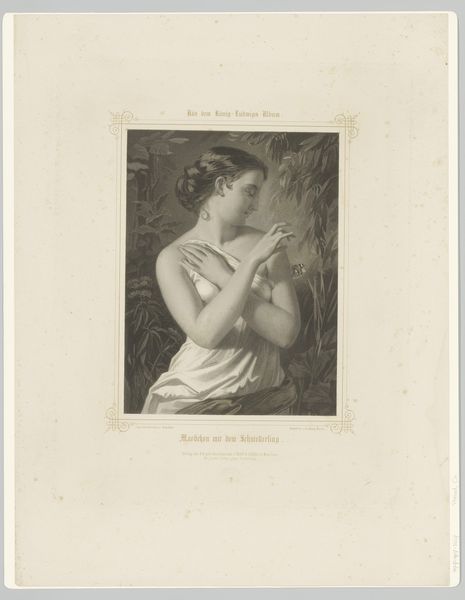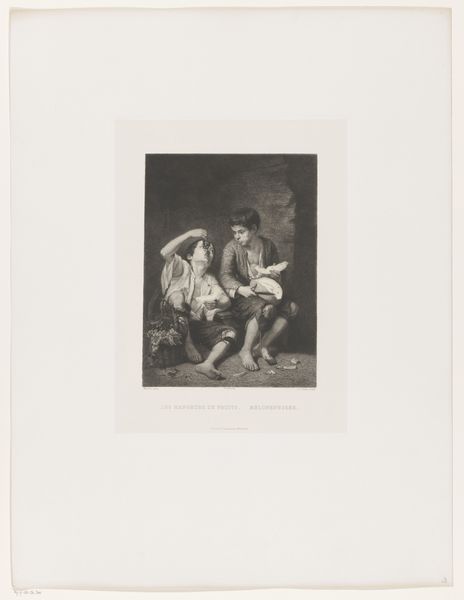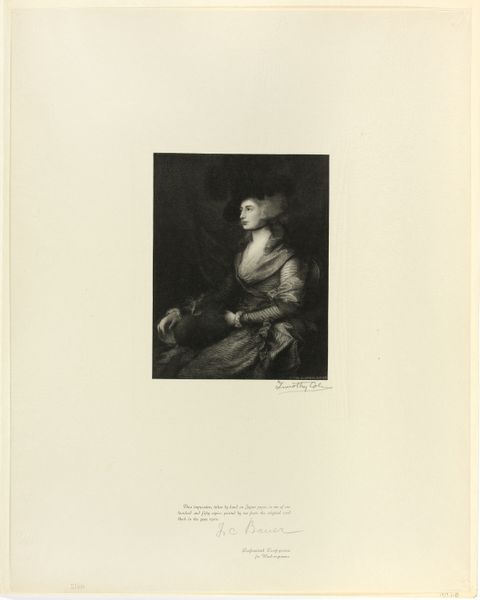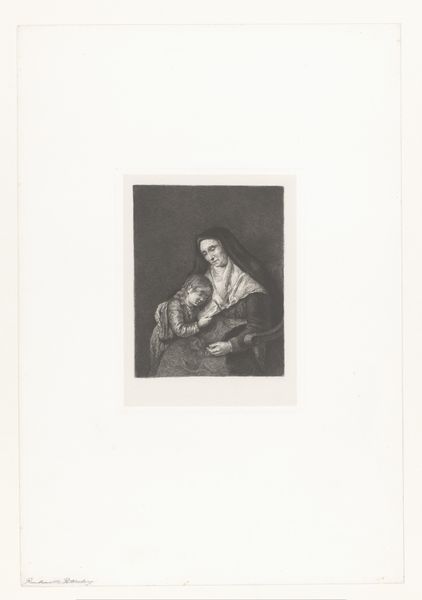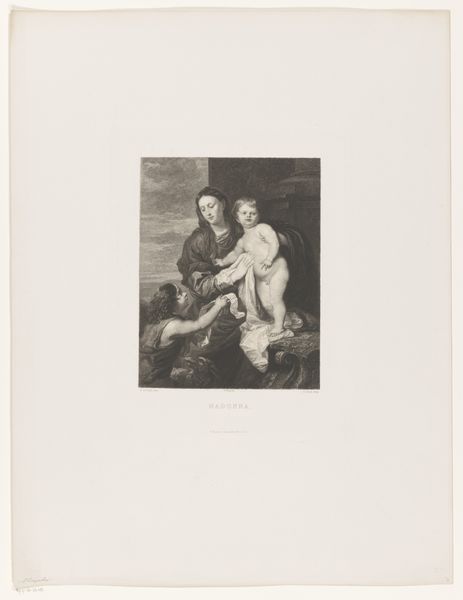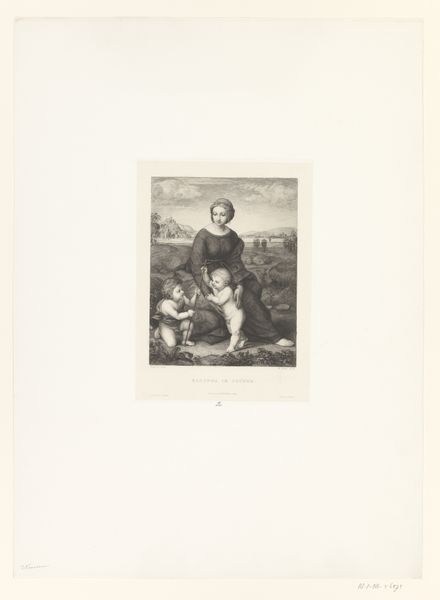
print, engraving
#
portrait
#
allegory
# print
#
old engraving style
#
history-painting
#
academic-art
#
engraving
Dimensions: height 209 mm, width 164 mm
Copyright: Rijks Museum: Open Domain
Eugène Gaujean made this print, Hertogin de Brac als Aurora, sometime in the late 19th century. The print transforms the sitter into the Roman goddess of dawn, inviting us to consider the role of portraiture in constructing social identity. This image revives conventions of aristocratic portraiture from 18th-century France. Such portraits were instruments for establishing status and circulating idealized images of the elite. Gaujean updates this tradition by depicting a modern duchess as a mythological figure. Note the cherubic figure accompanying her. This is likely Cupid, reinforcing associations between the sitter and classical beauty. France in the late 1800s was a society still grappling with the legacy of its aristocratic past, and portraiture played a crucial role in shaping the public's perception of the rich and powerful. By re-engaging with visual codes from the Ancien Régime, Gaujean's print testifies to the enduring allure of aristocratic traditions in modern France. Historians explore such images through archives of printed images, genealogical records of elite families, and studies of French social history. In this way we reveal the complex interplay between art, power, and social identity.
Comments
No comments
Be the first to comment and join the conversation on the ultimate creative platform.
